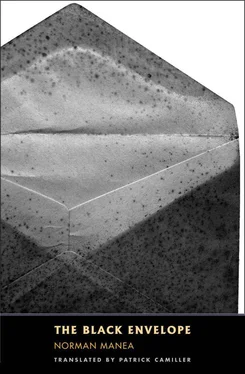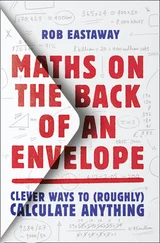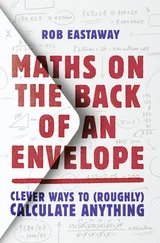“What’s up with this letter? Why are you hiding it?” continued the maestro. “It must be a dirty letter to entice you. I know what women are like! Read it, come on, read it out loud — to warm me up. Read the invitation for tonight. Come on—”
“Was it on a spring day like today that you began the Allegory of Prudence ? A very old man in profile looking to his left. Your profile, I’m sure. Only two self-portraits were known: the one in Berlin and the one in the Louvre. This would be the third. The collection of Mr. Francis Howard. Later sold to Legatt. So, an old man looking to the left. Then, in the middle, a frontal view of a man in his maturity. Then a beardless profile on the right. Youth, maturity, old age. Future, present, past. Especially Prudence. Prudence, not indifference.”
“Well, no, I haven’t any rivals in portraiture. Even in my unfinished lifetime, I was a master of several generations. But what does it matter now? I’m ninety-nine, as I said before. I’m dying; I’ve been infected. No one will regret my passing. Only my housekeeper. A hell of a woman. A real beauty. Still young, my God! She takes care of me, do you understand? We look after each other from time to time. I’m still up to it, you know. Still got my strength. I haven’t shaken off that sin of vigor. And the little she-devil takes advantage. She lets me take advantage, I mean. The strength of a madman. But now I’ve been infected and I’m ninety-nine. Filthy germs — filthy like the times we’re living in. I won’t pull through. I told you, I haven’t got long to go.”
“The three-headed monster comes from the East, but you took your lead from Europe. Not zoomorphic but anthropomorphic. Europe: does that mean Apollo and Christ? The ravenous wolf devouring memories. The omnipotent, majestic lion is the present. The future is hesitant like a groveling dog. Did you dream of Prudence, the symbol of the ages of man? Is prudence mute?”
“What do you want from me? I don’t know what you’re after with all this mad talk. Cut it out or I’ll go crazy, you madman,” Titian began to shout. “I’m going crazy, do you hear? Let me die, you madman. I’m dead as it is: I’m ninety-nine!”
He let himself slide to the ground, as if completely worn out. Nothing more was seen or heard. It was just a faint, from the hot wilting sun. But the voice returned.
“That one-eyed fatso doesn’t know the cure. I’m going to die. They all lie to me. There’s no cure for death. Believe Vecellio, you crazy man. Old Vecellio knows that whore all right. I told you, I’m Titian: I’m ninety-nine.”
“But what about the painting in the collection of King Carol of Romania?” Sleepwalker Tolea could hear himself asking.
“Carol — Charles, of course. It’s because of him that I broke off the Pope’s portrait, as I told you. Charles V summoned me to Rome. I left the Pope in the lurch when Charles called me. Emperor Charles V. They all wanted to have their portrait done, to be immortal.”
The midday sun had completely exhausted him. His bony red hands were lying on his chest. But the patient, Tolea, insisted, and his voice was clear and firm.
“A small painting. Saint Jerome kneeling. Maybe you don’t know, but it is featured in a Bachelin catalogue. Another version is at the Balbi in Genoa, a copy is in the Louvre, and an alternative—”
The patriarch had dozed off, with his thick-veined hands hanging down over the pendant. But he started and opened his eyes. Enormous eyes, enormous ears.
“Altern— What altern? What is all this? What are you after? I told you: I’m dying, you fool. There is no alternative. Death, death! Phew!” And he spat profusely, with the repulsive cough of an old man, bending a long way toward the ground.
The word “death” revived him, and he repeated it with a burst of energy, as if suddenly risen from the dead.
“I’m not stupid, young man. I know what I’m leaving behind. The block has got to be dragged along by the teeth. Yes, as if it were made of precious stone! It’s all we have, you know. Keep it safe from germs! You don’t know when how— Look, I’ve been infected with your disease. I’ll soon be dead. I caught it from you, I caught it from fools. Your disease is finishing me off. I’m ninety-nine: Tiziano Vecellio is dying, you know.”
His big heavy head fell on the seashell pendant; the old man was exhausted. A huge, thick snore with matching convulsions filled the hospital grounds. Teenage Tolea started, opened closed opened his eyes, stretched out his arms, and touched the bench. He felt quite dizzy for a while. Then he got up, walked away, and found another single bench in a deserted corner of the park. He opened the envelope. It was familiar — yes, the old envelope, the awkward script, the irregular white spaces between the words.
The secret line, accompanying us to the end. Yes, that’s it: to the end.
The pink smoky fog of the past all around, and the prisoner found himself lost. He returned, again set off, again returned: a chubby-faced and lisping boy. A chubby-faced angel with curls landed at the foot of the bench. Little blue denim trousers, a Tyrolean waistcoat. Huge cold eyes, short pink fingers. The trees were fluttering and the lake lay dozing. The blue-forested lake, the lilac in bloom, and the nightingales of an Eden swarming with sentinels where the spies’ antennae whistled and the stench of the underground triumphantly spread out.
Fascinated by the glossy envelope and the letter, he pulled them toward him from the other end of the bench. For a moment he looked at them with disgust, then crumpled them up in his hand. He ran toward the sandy hillock, crouched down, fell, picked himself up, sat down sensibly in the sand. He began to tear the envelope and letter into tiny pieces, smaller and smaller, as small as possible, until they were dust. He carefully collected them all and began patiently to bury the little heap of ex-words in the sandy tomb, filling it again and again with a child’s bucket and pail until not a trace remained.
He gazed at the tomb for another moment, after which he stood up contentedly. An image of waiting. Then the insane trilling broke out, the stormy, merry, irrepressible laughter. The heavenly garden filled with peals of childish laughter. Ever glassier, ever more sarcastic. Then the laughter became thicker and thicker, older and older.
A hoarse, choking laughter, as usual.
RINGING. SHE HAS NEITHERthe strength nor the desire to pick up the receiver. She knows what will follow: a long silence. Recently she has been getting this mute call, more and more often, which she is careful not to decode.
The ringing comes back after a while. She jumps up from the chair, realizing that, in fact, it is the doorbell. This has happened to her before: yes, thoughts without thoughts, like a state of drowsiness; the one you keep calling without ever calling him now calls and does not call you. But it is a different sound, in fact, quite different.
She suddenly remembers that this afternoon she has invited around her old comrade in silence, Ianuli. Kir Ianuli, the friend with whom you can be silent for a few hours in difficult moments. Yes, she invited him round, fearing that she would not have the strength to be alone. The silent one, with his dark discretion. A good device: a substitute guest for a canceled celebration.
She looks through the peephole in the door. No, it’s not the one she is expecting. She opens the door wide.
“Wow, what a surprise this is!”
The elegant guest remains in the doorway, holding out a huge bunch of red roses.
“The card index never seems to lie. So, if I’m not disturbing you, I’ve just come to say happy birthday.”
Читать дальше












